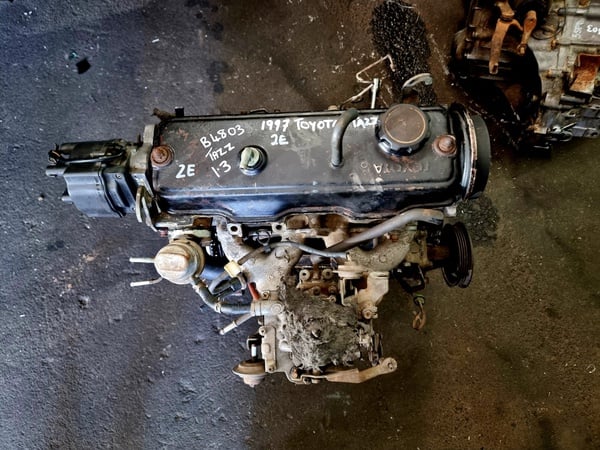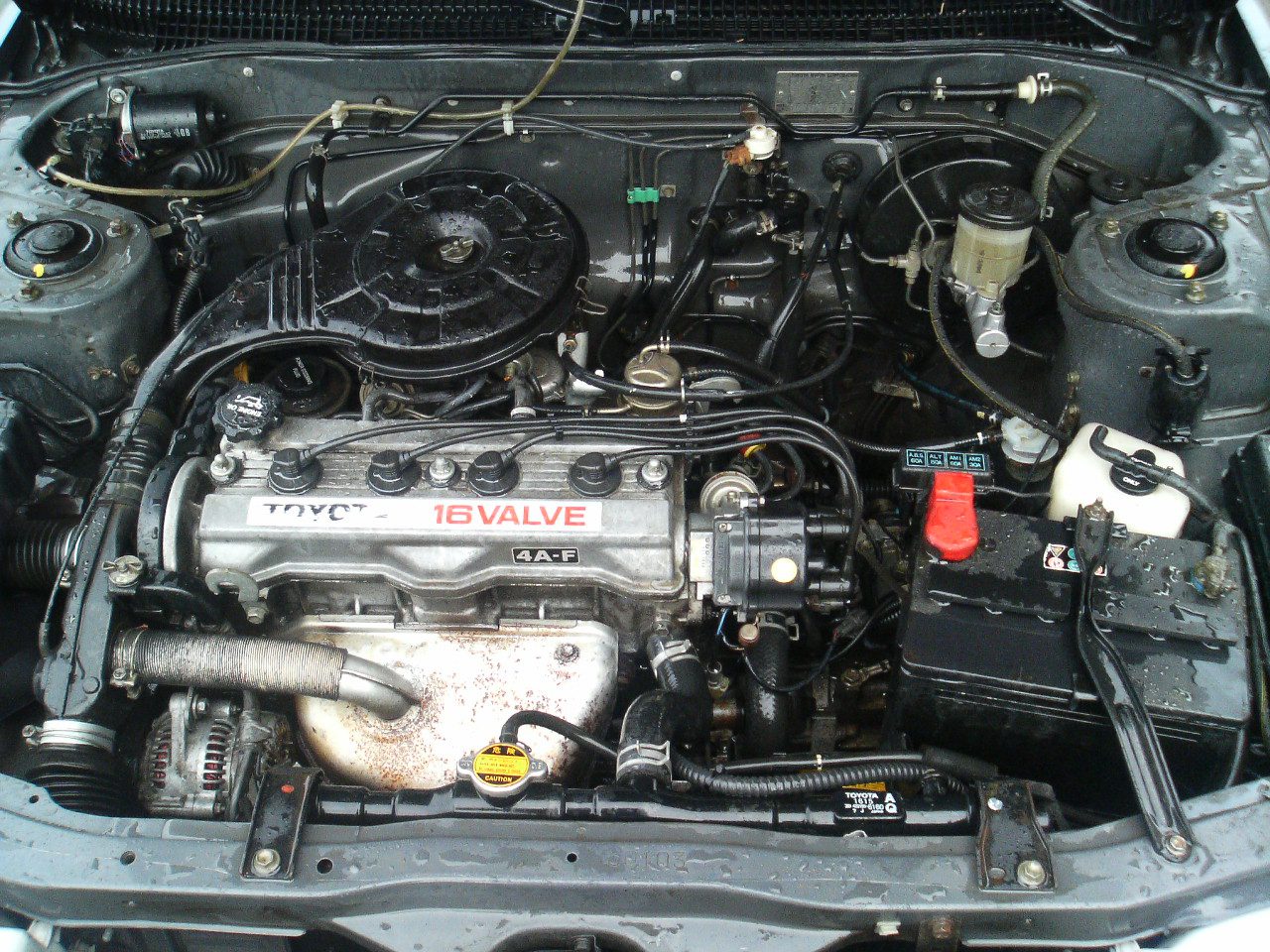Toyota Tazz: A Comprehensive Review of Performance and Comfort
Toyota Tazz: A Comprehensive Review of Performance and Comfort
Blog Article
Check Out the most recent Trends in Engine Technology With Tazz
In the quickly progressing landscape of vehicle innovation, Tazz stands at the forefront, highlighting significant developments in engine systems that prioritize both technology and sustainability. From crossbreed engines that enhance fuel efficiency to the appearance of hydrogen gas cells, the trends forming modern-day powertrains are not just enhancing performance yet likewise dealing with critical ecological difficulties.
Hybrid Engine Innovations
Hybrid engine technologies stand for a critical change in vehicle technology, incorporating the benefits of internal burning engines with electric propulsion systems. This assimilation not only enhances fuel efficiency however also lowers discharges, meeting progressively strict ecological policies. By making use of both energy resources, hybrid engines can optimize efficiency, supplying power when needed while preserving fuel throughout less requiring driving problems.
Current developments in crossbreed technology consist of improvements in battery effectiveness and regenerative stopping systems. These developments permit greater power recuperation during slowdown, which can be rerouted to help in velocity or power auxiliary systems. Additionally, producers are concentrating on lightweight materials and small layouts to take full advantage of the effectiveness of crossbreed powertrains.
The advancement of plug-in crossbreeds has likewise increased the market, making it possible for motorists to charge their vehicles utilizing conventional electrical outlets. This attribute frequently permits significant all-electric array, more lowering dependancy on typical fuels. tazz. As the vehicle industry continues to advance, hybrid engine innovations are anticipated to play an essential duty in linking the void in between standard cars and completely electric designs, offering a transitional service that satisfies diverse customer demands and choices
Developments in Electric Powertrains
The automotive landscape is rapidly progressing, with electrical powertrains emerging as a leading force in lasting transport. Developments in electric automobile (EV) modern technology are dramatically improving performance, performance, and individual experience. Secret innovations include renovations in battery chemistry, which have actually increased power density, reduced billing times, and extended total battery life.
Solid-state batteries, as an example, promise to revolutionize the marketplace by offering better security and efficiency contrasted to traditional lithium-ion cells. In addition, developments in regenerative stopping systems are making it possible for cars to recoup energy throughout deceleration, adding to overall effectiveness.
In enhancement to battery innovation, electrical motor styles are ending up being extra sophisticated. Innovations such as integrated motors and advanced thermal management systems are helping to enhance power delivery and minimize weight, inevitably enhancing vehicle characteristics.

Collectively, these advancements underscore the commitment to transition towards cleaner, more efficient transportation services, positioning electrical powertrains at the center of auto technology.
The Surge of Hydrogen Gas Cells
Progressively, hydrogen fuel cells are acquiring traction as a practical option to conventional internal burning engines and battery electrical automobiles. This innovation utilizes the chemical energy saved in hydrogen, transforming it into electrical power with an electrochemical reaction with oxygen. The key by-product of this process is water, making hydrogen gas cells an eco friendly option with absolutely no discharges at the tailpipe.

Automakers are progressively buying hydrogen gas cell technology, acknowledging its possibility for long-range applications and quick refueling capabilities that match traditional gas. In addition, markets such as sturdy transport and public transit are especially appropriate for hydrogen gas cells, where battery electrical remedies might fail due to weight and range constraints.
As research and investment continue to broaden, hydrogen fuel cells are poised to play a considerable function in the future landscape of clean transportation and energy options.
Enhancements in Internal Combustion Engines
Advancements in inner burning engine (ICE) technology are changing traditional vehicles to meet modern-day ecological criteria and efficiency assumptions. One of the most significant enhancements includes the combination of advanced fuel shot systems. These systems maximize the air-fuel combination, improving burning performance and causing reduced exhausts. Straight gas injection, as an example, allows for better atomization of gas, causing more complete burning and improved power outcome.
In addition, turbocharging has actually gained prestige, allowing smaller sized engines to provide higher efficiency without the weight of larger engines - tazz. This modern technology not only enhances effectiveness yet likewise contributes to reduce gas usage. Variable valve timing systems are likewise being refined, allowing engines to adapt to different driving problems for enhanced torque and responsiveness
Moreover, the usage of light-weight materials in engine building and construction is ending up being typical, additional boosting fuel performance by decreasing total vehicle weight. Engine control systems (ECUs) are significantly advanced, making it possible for real-time adjustments that enhance efficiency and emissions.
These enhancements jointly indicate a pivotal change in ICE modern technology, aligning with worldwide sustainability objectives while still providing the performance motorists anticipate from their vehicles. As the market progresses, these renovations proceed to shape the future of conventional vehicle design.
Future Fads in Engine Efficiency
Significant improvements in engine performance are prepared for as manufacturers focus on integrating advanced innovations to fulfill rigorous environmental regulations and consumer demands. The shift towards electrification, hybrid systems, and alternative fuels is reshaping the automotive landscape, driving developments that improve fuel economy and decrease discharges.
One of the essential patterns is the application of advanced materials and manufacturing techniques. Light-weight compounds and high-strength alloys contribute to decreased car weight, therefore improving overall efficiency. In addition, the fostering of turbocharging and variable shutoff timing innovations allows for improved power result from smaller sized engines, additionally enhancing fuel economic situation.

Conclusion
Technologies in hybrid engine systems, electrical powertrains, and hydrogen gas cells show a dedication to decreasing emissions while improving efficiency. Renovations in interior combustion engines and an emphasis on lightweight materials contribute to general engine efficiency.
From hybrid engines that optimize fuel performance to the appearance of hydrogen fuel cells, the fads shaping modern powertrains are not only improving performance yet likewise attending to critical environmental difficulties.Hybrid engine developments represent an essential shift in vehicle modern technology, integrating the benefits of internal combustion engines with electric propulsion systems.Additionally, turbocharging has gained prominence, permitting smaller sized engines to supply greater efficiency without the weight of larger engines. Additionally, the adoption of turbocharging and variable shutoff Continue timing modern technologies permits for boosted power outcome from smaller engines, even more enhancing fuel economy.
Renovations in inner combustion engines and a focus on light-weight products contribute to overall engine performance.
Report this page